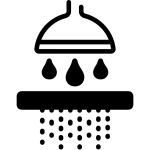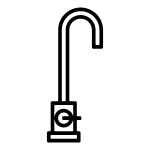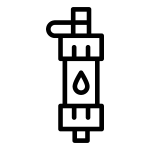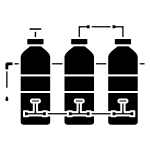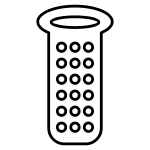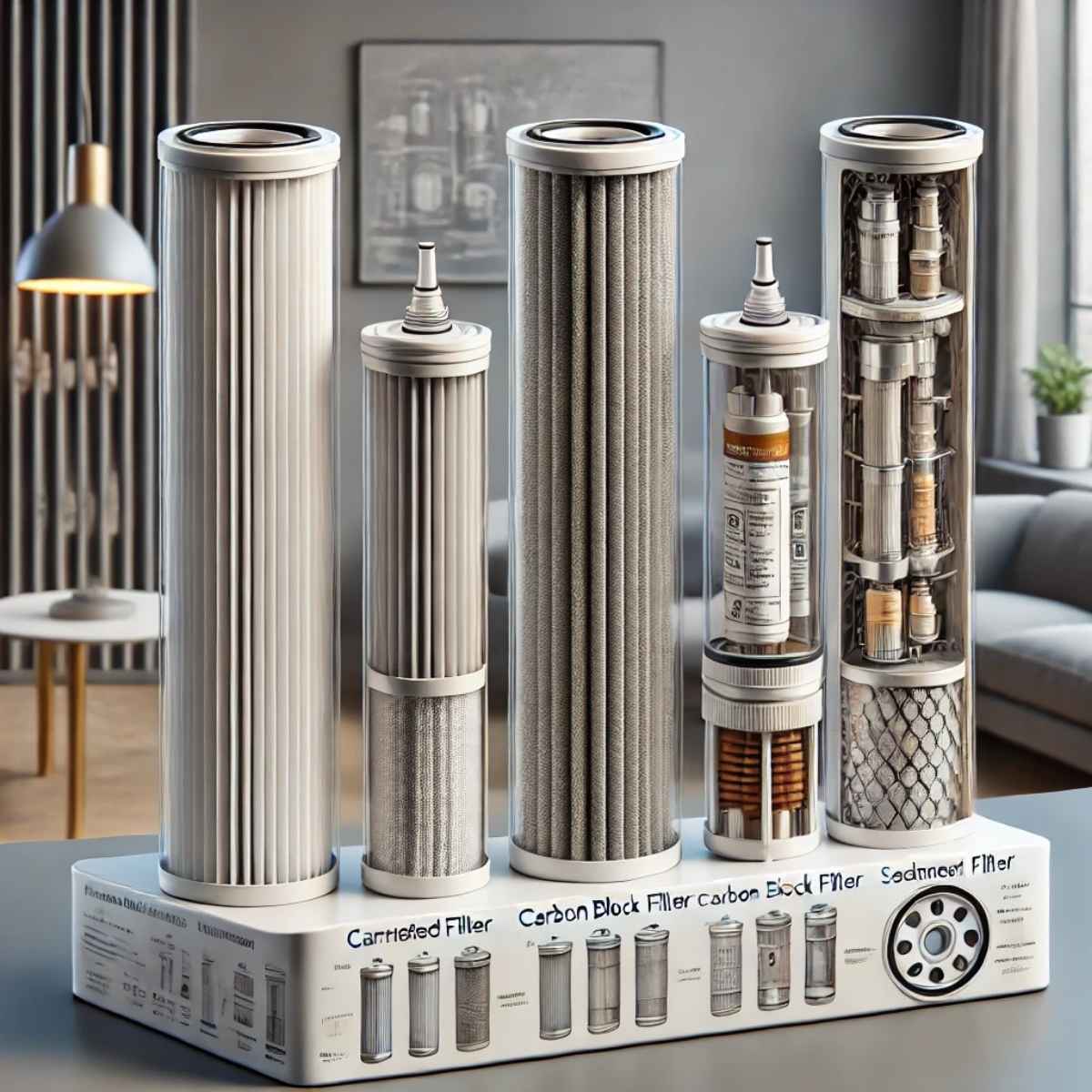Activated Charcoal Water Filter – Benefits, How It Works & Buying Guide. Discover everything about activated charcoal water filters. Learn how they purify your water, their health benefits, and how to choose the best one for your home.
What is an Activated Charcoal Water Filter?
An activated charcoal water filter is a filtration device that uses specially treated charcoal to remove impurities from water. The charcoal is “activated” through a process that makes it incredibly porous, increasing its surface area and making it more effective at trapping contaminants.
These filters are commonly found in:
- Water filter pitchers
- Under-sink filtration systems
- Shower filters
- Refrigerator filters
- Whole house filtration systems
Activated charcoal is a natural and eco-friendly option, making it a preferred choice for health-conscious consumers.
2. How Does Activated Charcoal Filter Water?
The secret lies in adsorption, not absorption. Activated charcoal doesn’t soak up impurities—it traps them on its surface.
Here’s how the process works:
- Water passes through the porous surface of activated charcoal.
- Chemicals, dirt, and impurities get trapped in the charcoal’s tiny pores.
- Clean water flows out, free from many common contaminants.
The massive surface area of activated charcoal (a single gram has over 32,000 sq ft of surface area!) gives it the power to purify water effectively.
3. Benefits of Using Activated Charcoal Water Filters
Using an activated charcoal water filter offers multiple benefits. Let’s break them down:
✅ Removes Harmful Contaminants
- Chlorine
- VOCs (Volatile Organic Compounds)
- Pesticides & herbicides
- Bad tastes and odors
✅ Enhances Water Taste
By removing chlorine and other chemicals, filtered water tastes fresher and more pleasant to drink.
✅ Cost-Effective
Compared to reverse osmosis systems, activated charcoal filters are budget-friendly and low maintenance.
✅ Eco-Friendly
Charcoal is a natural material, often derived from coconut shells or wood, making these filters a more sustainable option.
✅ Safe for All Ages
From babies to the elderly, charcoal-filtered water is safe for drinking, cooking, and bathing.
4. Activated Charcoal vs. Other Filter Types
Here’s a quick comparison between activated charcoal water filters and other common filtration methods:
| Filter Type | Main Feature | Removes | Cost |
|---|---|---|---|
| Activated Charcoal | Natural filtration | Chlorine, VOCs, bad taste | Low |
| Reverse Osmosis | Multi-stage filtration | Heavy metals, fluoride, bacteria | High |
| UV Filters | Uses UV light | Microorganisms | Medium |
| Ceramic Filters | Porous ceramic surface | Sediments, bacteria | Medium |
Activated charcoal water filters strike a great balance between effectiveness, affordability, and ease of use.
5. Top Uses of Activated Charcoal Water Filters at Home
You can use activated charcoal filters in multiple areas of your household:
- Kitchen: Filter tap water for drinking and cooking.
- Bathroom: Use in showerheads to remove chlorine from bathing water.
- Refrigerators: Filters used in ice makers and water dispensers.
- Whole House Systems: Ensure all water sources in your home are filtered.
At Cuoll, we offer a variety of activated charcoal filters designed for every room in your house.
6. How Long Do Activated Charcoal Filters Last?
The lifespan of your activated charcoal water filter depends on:
- Water usage
- Water quality
- Filter design
Typical Lifespan:
- Pitcher filters: 2-3 months
- Under-sink filters: 6-12 months
- Whole-house filters: Up to 12 months or more
Always refer to the manufacturer’s recommendation, and consider changing your filter if:
- Water starts to taste or smell odd
- Flow rate drops
- You’ve reached the usage limit
7. How to Choose the Right Activated Charcoal Water Filter
When shopping for the best filter, keep these factors in mind:
💧 Filter Capacity
Choose a filter based on the number of people in your household and your water usage habits.
🧪 Contaminant Removal
Check if the filter is certified to remove chlorine, VOCs, and other specific contaminants.
🛠️ Ease of Installation
Some filters are DIY-friendly, while others might need professional help.
💵 Price & Replacement Costs
Look beyond the upfront cost. Factor in replacement cartridge costs for long-term use.
🔄 Maintenance
Some filters need frequent changes; others last longer but may be more expensive.
Need help choosing? Visit the Water Filter section on Cuoll.com for expert recommendations.
8. Installation Tips & Maintenance
Installation:
- Read the product manual.
- Flush the filter for the first few minutes to remove carbon dust.
- Secure it tightly to avoid leaks.
Maintenance:
- Replace filters on schedule.
- Clean housing units regularly.
- Store spare filters in a dry, cool place.
By maintaining your activated charcoal water filter properly, you’ll enjoy clean water for years to come.
9. FAQs
❓ Is activated charcoal safe for drinking water?
Yes. Activated charcoal is non-toxic and widely used in water purification systems.
❓ Does it remove fluoride?
No, activated charcoal does not remove fluoride. For fluoride, consider reverse osmosis or special filters.
❓ Can I use activated charcoal powder directly in water?
Not recommended. Use pre-made filters to avoid ingesting carbon particles.
❓ How do I know if my filter is still working?
Taste and smell are good indicators. Reduced water flow also suggests it’s time for a replacement.
10. Where to Buy Activated Charcoal Water Filters Online
Looking for premium-quality activated charcoal water filters? Browse the Cuoll collection today:
- ✅ Under-sink carbon filters
- ✅ Whole-house systems
- ✅ Showerhead filters
- ✅ Pitcher filters
All our products are:
- NSF certified
- Easy to install
- Backed by customer support
👉 Shop now at Cuoll for the best deals on water filtration!
Conclusion
An activated charcoal water filter is one of the easiest, safest, and most cost-effective ways to improve your water quality at home. Whether you’re looking to enhance your drinking water, protect your family’s health, or reduce your exposure to harmful chemicals, activated charcoal is a smart choice.
Invest in clean water—your health deserves it.


